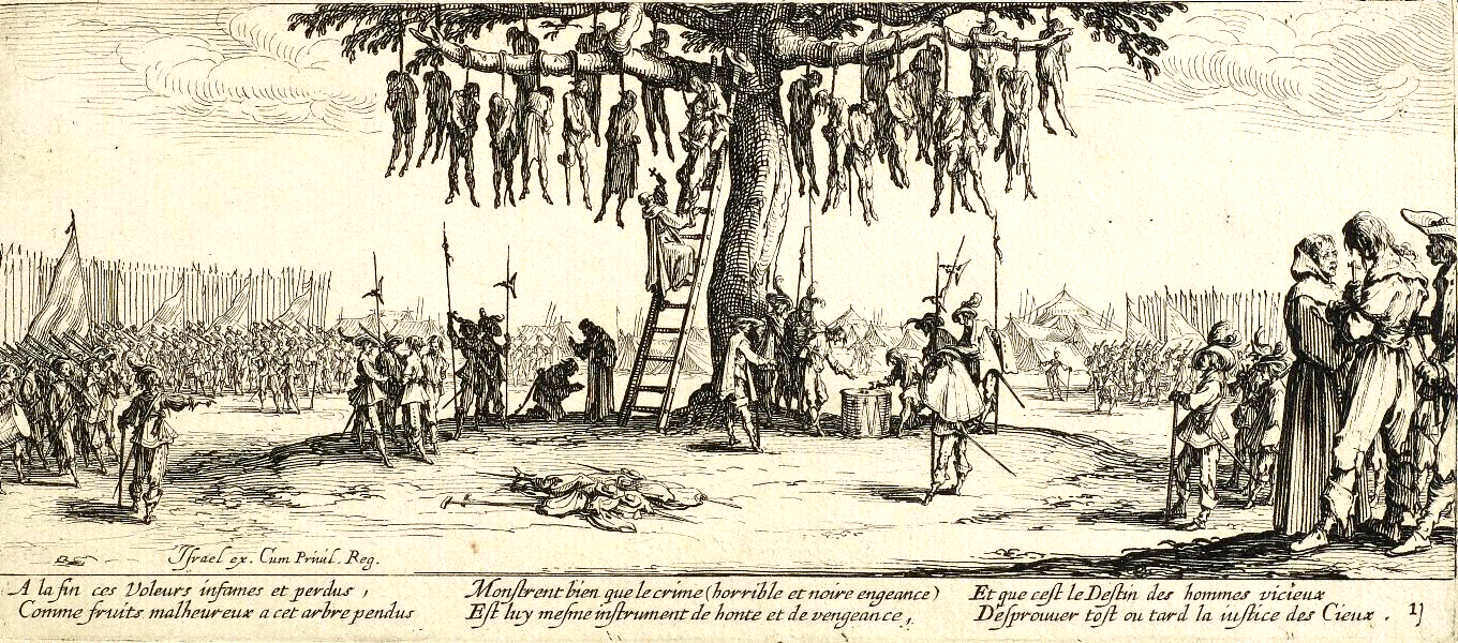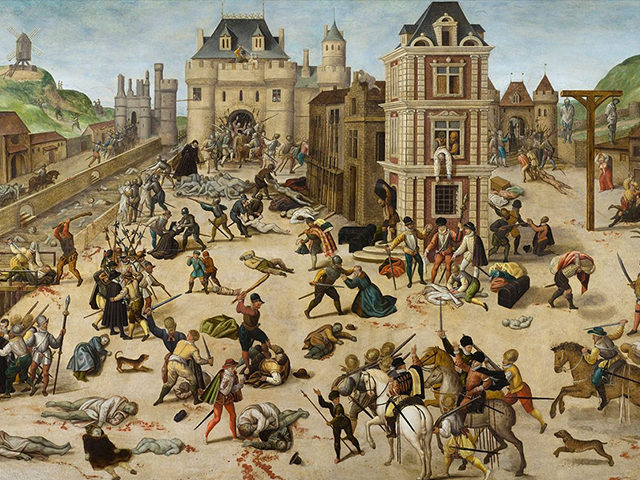Who Should Pay? Who Should Get?
As we all know, talk of reparations for injustice is everywhere. But here’s a headline, appearing in the British Spectator magazine, that hit home to Virgil, old Roman that he is: “Italy owes Wales reparations for the wrongs of the Roman Empire.” The author, one Lloyd Evans—an impeccable Welsh name, that—declared:
Let me add my voice to the clamour on behalf of this island’s indigenous Celtic people. My family are from Llanelli in Carmarthenshire and I believe that my compatriots have an excellent case to make against the Roman Empire.
Yes, Evans said he wants reparations for the Roman invasion of Great Britain, launched by Julius Caesar in 55 BC; it was a bloody business, leading to the subjugation of the island’s Celtic inhabitants, including those in Wales.
Indeed, Evans went further in his demand for compensation; he recalled that later on, in the 5th and 6th centuries, AD, the Welsh were once again conquered, victims of “Anglo-Saxon aggression.” That is, the Angles and the Saxons, two tribes coming across the sea from Germany, drove out the Romans but still kept the Celts in bondage. So Evans’ logic would suggest that the Celts today have a claim against not only Italy and Germany, but also, of course, against descendants of past invaders still living with them—quite likely, after all these centuries, in their own families—in what’s now the United Kingdom.
Yet then, to Virgil’s great relief, it turns out that Evans was kidding in his demand for reparations. As he put it, “The idea of ‘you owe me money because your ancestors wronged my ancestors’ doesn’t sound like justice to me. It has the air of a ghost-story.”
Yes, human history is full of ghosts—and all of them have suffered a wound and thus hold a grievance against other ghosts. We might recall the cry of the ancient British king Calgacus, who said of the Romans, “To robbery, slaughter, plunder, they give the lying name of empire; they make a wasteland and call it peace.”
Indeed, at its largest extent, the Roman Empire extended to all or part of what today are 46 countries; so as we can see, many different peoples were victims. Thus everyone from the Scots, at the northern edge of the old empire, to the Saudi Arabians, at the southern edge, could have a claim against the successors to the Romans, the people of Italy.

A Roman marble statue of “The Dying Gaul” commemorating Attalus I’s defeat of the Galatian tribes at the Battle of the Caecus River in 241 BC. (Wikimedia Commons)
Yet if claims against the ancient Romans are being advanced playfully, other claims are being pressed seriously. For instance, Rep. Sheila Jackson Lee (D-TX), has long been pushing a bill calling for a “study” on the need for reparations for American slavery. (It’s not hard to guess what the results of the study might be.) Jackson Lee hasn’t had much support for her legislation in the past, although in recent weeks, according to the Wall Street Journal, Democratic support has been increasing—it now has the support of Joe Biden. Indeed, in a June speech to the National Association for the Advancement of Colored People, Biden said, “If, in fact, there are ways to get direct payments for reparations, I want to see it,” adding, “Why are we waiting around for the study? We can deal with this stuff.”
In the meantime. scattered locales across the country, including Evanston, Illinois, and Asheville, North Carolina, have moved ahead with local reparations programs.
To be sure, a July Washington Post/ABC News poll found that a full 63 percent of Americans oppose reparations for slavery, and yet if Biden and the Democrats win this year, reparations are a distinct possibility, public opinion notwithstanding.
So we might ask: How would such a reparations program work? For sure, that’s a mind-boggling question. Look, it was I, Virgil, who wrote The Aeneid, the epic poem about the founding of the Roman Empire, and so I’m used to thinking big. Yet still, my imagination reels at the thought of how a reparations program would actually be administered.
Let’s start with who in the U.S. would be eligible: How to determine who is the descendant of a slave? And for that matter, how to determine who is black? After all, genetic-testing services such as 23 and Me have opened our eyes to the plenteous biological mix of the American population.
Indeed, back in 2014, The American Journal of Human Genetics found that the genome of the average American black is just 73.2 percent African. At the same time, the average Hispanic has 6.2 percent African ancestry. In fact, some 3.5 percent of European-Americans have African blood. Also, as recalled here at Breitbart News, in 2019 Housing and Urban Development secretary Ben Carson recalled, “I did my DNA analysis. . . . I’m 77 percent sub-Saharan African, 20 percent European, three percent Asian. So how do you proportion that out to everybody?” Good question, Mr. Secretary.
We can add that the same Breitbart News article reported on a demand by a Duke University professor that slavery reparations should total $12 trillion. With that much money potentially at stake, the question of who would be eligible for a reparations payment would lead to a national scramble for free money.
Such comparative, and competitive, racial typing might seem offensive to those who were taught that America should be a color-blind melting pot, but if we ever were to go down this road of reparations by race, it’s inevitable that the spoils would have to be divided somehow.
Also, we should ask: Shouldn’t some white Americans owe more than others? Owing the most, of course, might be those whose ancestors actually owned slaves—but that was only about 32 percent of the Southern white population in 1860.
Interestingly, the roster of Southern slave-owners includes the family that now owns the New York Times. This story was broken by journalist Michael Goodwin, who detailed that not only did the Ochs family own slaves, but in addition, those slave-owners were staunch champions of secession; a few of them even wore the gray Confederate uniform. (And as The National Pulse added, long after the Civil War, the Times routinely ran pro-Southern, pro-segregationist news stories and editorials. Indeed, in 1908, it published a fawning piece celebrating the centennial of the birth of Confederate president Jefferson Davis.)
Still, for the sake of administrative convenience, future authorities might declare that all white Southerners—at least those with roots in the region—are liable today, for the simple reason that their ancestors were a part of the Confederacy. Except, well, that’s not true. In fact, to cite just one Southern state’s history, about three percent of white Alabamans who fought in the Civil War fought for the North.
Most notably, the 1st Alabama Cavalry Regiment, more than 2,000 strong, formed the personal escort for Union Gen. William T. Sherman. One might think that the descendants of those white men who fought to free black slaves would at least get some sort of discount on their reparations bill, and perhaps even a rebate of some kind.

Photograph of the 1st Alabama Cavalry Regiment. These Southern Unionists served as escorts for Major General William T. Sherman during his March to the Sea through Georgia in 1864.
Moreover, there’s the white population that came here after slavery was abolished; more than 12 million immigrants passed through Ellis Island in New York between 1892 and 1954. So how much should the descendants of Ellis Islanders owe?
We might also add that the search for slavery culpability should properly extend beyond America’s borders—extending, even, to Africa. After all, virtually every slave brought to the Americas from the 17th to the 19th century was first captured by African slave-traders and then sold to European slave-ship owners for transport across the Atlantic. Hence this Washington Post report from the onetime slaving hub of Benin: “An African country reckons with its history of selling slaves.”
Indeed, the realization of ancestral slave-trading guilt can be quite personal, as this recent headline from the BBC attests: “My great-grandfather owned slaves.” Author Adaobi Tricia Nwaubani, a Nigerian, was moved to reflect on the anguish that comes from having uncovered a sordid slaving history: “Assessing the people of Africa’s past by today’s standards would compel us to cast the majority of our heroes as villains.”
Yet even as we seek to chronicle everything, we can pause to observe that at one time or another—oftentimes, in fact, for thousands of years—virtually every society on the planet has been a slave-holding society. Indeed, it’s entirely possible that just about every human being on the planet today is the descendant both of slaves and of slave-holders.
While we’re at it, we must consider another category of historical miscreant: those who supported slavery. For instance, there’s the Greek philosopher Aristotle, about whom a recent headline atop an op-ed in the New York Times asked, “Should We Cancel Aristotle?” As the op-ed author pointed out, “The Greek philosopher Aristotle did not merely condone slavery, he defended it; he did not merely defend it, but defended it as beneficial to the slave.” Interestingly, the author did not take note of the Times‘s own past support for slavery; in the meantime, though, one suspects that the purge of Aristotle from libraries and course curricula is already under way.
Now, returning to America today, we can also ask: If reparations for American blacks were approved, would reparations for American Indians be far behind? And so once again, we would, to keep things honest, have to initiate racial testing to cancel the claims of faux Indians. Indeed, we might recall that blonde-haired, blue-eyed Elizabeth Warren—who claimed Native American ancestry for so long, and did so well by doing so—is now demonstrably in fact 1/1024 Indian. So since she’s not completely Fauxcohontas, how much would she be entitled to?
And yet come to think of it, what percentage of the American population can claim at least a Warren’s worth of Indian heritage? So how much money for them?
Why Stop at Slavery? What About All the Other Misdeeds Around the World?
Okay, so now we’ve got this reparations train rolling. So as we search around the globe for more compensation-worthy victims, we might start by recalling that Victims of Communism Memorial Foundation estimates that some 100 million people were killed by communist regimes in the 20th century, in countries ranging from Russia to China to Cambodia to Cuba. So how to get compensation for them?
We might note that it’s estimated that as many as 65 million of those victims were killed in China alone. Indeed, the death toll at the hands of the Chinese Communist Party could be rising even today, as Muslim Uyghurs suffer an as-yet uncounted degree of persecution, and perhaps even outright genocide. As many as 3 million Uyghur Muslims have been imprisoned in concentration camps, according to human rights reports, and many are forced to work as slave labor — with the products of their forced labor sold even in the United States and even by companies that decry racism here.

Chinese flags line the road leading to a facility believed to be a re-education camp where mostly Muslim ethnic minorities are detained, on the outskirts of Hotan in China’s northwestern Xinjiang region, May 31, 2019. (GREG BAKER/AFP via Getty Images)
And speaking of “isms,’ what about jihadism? Do the many victims of jihadi violence deserve compensation? If so, from whom should they collect?
Moreover, since we’re allowed to think back in time in our quest for justice, we might recall all the many past atrocities committed in the name of faith. For instance, both Catholics and Protestants can look back to the Reformation, and the Wars of Religion, in the 16th and 17th centuries and find plenty of grudge-worthy material, including mass murder and the destruction of whole cities.
Indeed, it’s been estimated that just one particularly bad period during that century-and-a-half of religious strife, the Thirty Years’ War, 1618-1648, claimed the lives of one-third of all Germans. So now, where do their descendants go for compensation? To the French and the Swedes, who invaded Germany many times during those three decades? Or can German Protestants collect from German Catholics—and vice versa?

An etching circa 1632-33 from a series of 18 etchings by French artist Jacques Callot titled “Les Grandes Misères de la guerre” (“The Great Miseries of War”) depicting the violence and destruction unleashed on the civilian population during the Thirty Years’ War. This etching is No. 11 in the series, titled “La Pendaison” (“The Hanging”). (Wikimedia Commons)
Of course, we can go back even further in our search for justice. If we were to look, for example, at a map of Europe in the year 1500, we would see all sorts of kingdoms and principalities that don’t exist anymore, including Mayo, Ryazan, and the Papal States. So who wiped them out? Who should pay now for the damage done?
Similarly, if we go back to the year 1000, we see more vanished realms, such as Mumha, Arelat, and Ardil. Admittedly, it might be hard to trace the lineage of those victimized peoples to the present day, but with genetic science, it’s perhaps not impossible—and it might be worth a try.
Moreover, we would be remiss if we didn’t point out that the same cycle of conquering and being conquered has occurred not just in Europe, but everywhere else in the world. So while an “awoken” United States might seek to be a leader in the redressing of old wrongs, there’s nothing stopping other countries from going on the same historical-fiscal journey. So many victims to make whole!
But wait, there’s more! If we’re mindful of victims in need of compensation, what about victims of crime? What special bonus are they entitled to? And from whom? Last month, we learned that three or more federal officers might have been permanently blinded by laser-shining Antifa goons in Portland, Oregon. Those officers–and the many other officers who have been killed or injured in the line of duty–will be entitled to treatment and pensions, for them and/or their survivors. And yet wouldn’t true reparative justice put the burden on the specific perpetrators, just as with slavery?
And dare we ask: Should there be compensation for victims of . . . abortion? Okay, okay, it might be hard to find anyone to compensate for that loss of life.
Still, as we can see, the vistas for reparations are limitless. So if we all do move toward reparations as a goal we’ll find that we have to learn a lot of history, as we must seek historical evidence for our claims, as well as evidence for our defense against the claims of others.
Yet at the same time, there’s one other thing to keep in mind. And that is, we likely all will go mad in the process—as we attempt to juggle our dueling judgments of oppressor and oppressed. As one of Virgil’s characters in The Aeneid cries out in a moment of bewildered desperation, “What am I saying? Where am I? What madness twists my thoughts?”
They were good questions then, and they’re good questions now.

COMMENTS
Please let us know if you're having issues with commenting.